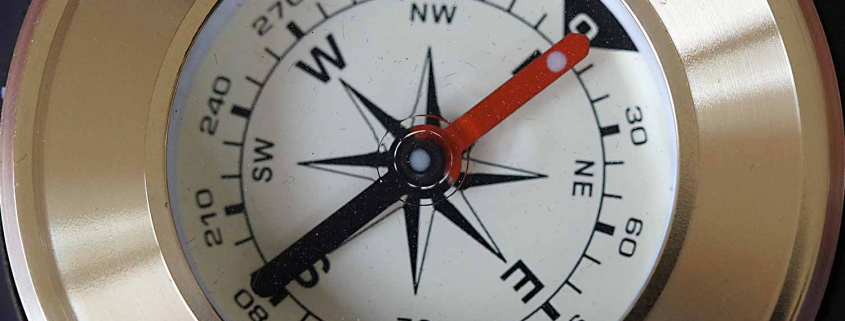Does FaceFormer® training improve the pronunciation of the S and other sibilants?
-
Applications and indications
- Against sleep apnoea FaceFormer or CPAP mask?
- Can a splint help if the bite block is not right?
- Can FaceFormer® training be done with braces and fixed brackets?
- Choking - Do you always notice it?
- Counteract swallowing disorders with FaceFormer®?
- Does FaceFormer® training improve the pronunciation of the S and other sibilants?
- Does FaceFormer® training reduce an asymmetry of the face halves?
- Does FaceFormer® Training reduce asymmetry of the face halves?
- Does FaceFormer® training strengthen the lip muscles?
- FaceFormer® application in sports
- FaceFormer® at night in addition to CPAP?
- FaceFormer® for tinnitus - How does it work?
- FaceFormer® therapy - Is there any experience regarding gaping eustachian tubes?
- FaceFormer® therapy for crossbite and headbite?
- FaceFormer® therapy for the relief of jaw complaints
- FaceFormer® Training as a cosmetic application against wrinkle development?
- How do I use FaceFormer® with a blocked nose for cold or hay fever?
- Is FaceFormer® Training useful against speech and swallowing disorders or tongue paralysis?
- Is there any research on FaceFormer® and cervical spine Eagle syndrome?
- Problem with biting open during FaceFormer training?
- Should the FaceFormer® be cut to size?
- Stärkt FaceFormer Training die Lippenmuskulatur?
- Why does facial paresis get better but tinnitus gets worse?
- Alle Beiträge anzeigen ( 8 ) Beiträge einfalten
-
CMD and jaws
- Can a splint help if the bite block is not right?
- Can the balance of the facial muscles be corrected by FaceFormer® therapy?
- Can the FaceFormer® be worn together with a splint?
- Does FaceFormer® Training reduce asymmetry of the face halves?
- Does the pressure from the FaceFormer® cause tooth displacement?
- FaceFormer® application together with Invisalign Retainer splints?
- FaceFormer® application with braces - Does it work?
- FaceFormer® therapy for crossbite and headbite?
- FaceFormer® therapy for the relief of jaw complaints
- What to do in case of irritation of oral mucosa or lips?
-
Expert information
- Are there special offers for professional customers, doctors and therapists?
- Can the FaceFormer® be used with passive patients (e.g. vegetative coma)?
- Does FaceFormer® training improve the pronunciation of the S and other sibilants?
- FaceFormer® application with braces - Does it work?
- FaceFormer® therapy - Is there any experience regarding gaping eustachian tubes?
- How can I participate in a FaceFormer® Therapy seminar?
- I would like to be included in the directory of therapists as a therapist or doctor.
- Is there any research on FaceFormer® and cervical spine Eagle syndrome?
- Muscle tension during sleep - Are all muscles flaccid?
- Should the FaceFormer® be cut to size?
- Why are methods based on neuroplasticity, such as FaceFormer® therapy, not more widespread?
- Why does facial paresis get better but tinnitus gets worse?
-
General
- Can months of use lead to material fatigue?
- Counteract swallowing disorders with FaceFormer®?
- Do I have to follow the instructions exactly when practicing?
- FaceFormer® exercise calendar is missing in the special set
- How can I find a specialist for FaceFormer® Therapy?
- How do I sterilize the FaceFormer®?
- How lasting is the success of the therapy
- I cannot play the FaceFormer® DVD on my PC
- Is the FaceFormer® available in different sizes?
- Is the FaceFormer® device customized for the user?
- What is the financial cost?
- Where can I buy FaceFormer®?
- Why are methods based on neuroplasticity, such as FaceFormer® therapy, not more widespread?
- Why is it recommended to replace the FaceFormer® after six months?
- Why you have to bite and swallow during the exercise
-
Practice
- Can children bite off parts of the FaceFormer®?
- Can I also train in supine position?
- Can months of use lead to material fatigue?
- Can the FaceFormer® be worn together with a splint?
- Do I have to follow the instructions exactly when practicing?
- Do I need therapeutic guidance for the FaceFormer® Training?
- Does FaceFormer® training strengthen the lip muscles?
- Dry lips with FaceFormer® application - What helps?
- FaceFormer® application together with Invisalign Retainer splints?
- FaceFormer® Training as a cosmetic application against wrinkle development?
- How do I sterilize the FaceFormer®?
- How do I use FaceFormer® with a blocked nose for cold or hay fever?
- How lasting is the success of the therapy
- How long is daily training?
- How tight should the tip of the tongue touch?
- Is it dangerous to wear the FaceFormer® at night and not be able to breathe through the mouth?
- Is prolonged use of FaceFormer® harmful to children?
- Is the tongue also held in front during sleep?
- My upper lip frenulum rubs against the FaceFormer®. What to do?
- Negative pressure brings jaws together. Am I doing something wrong?
- Nightly use for sleep apnea
- Problem with biting open during FaceFormer training?
- Should the FaceFormer® be cut to size?
- Sore muscles at the back of the head and neck due to FaceFormer® training?
- Stärkt FaceFormer Training die Lippenmuskulatur?
- What to do in case of irritation of oral mucosa or lips?
- Why do I feel some pressure on my front teeth in the morning?
- Why is it recommended to replace the FaceFormer® after six months?
- Why you have to bite and swallow during the exercise
- Wrinkles in the upper lip during training. What am I doing wrong?
- Alle Beiträge anzeigen ( 15 ) Beiträge einfalten
-
Snoring and Sleep apnea
- Against sleep apnoea FaceFormer or CPAP mask?
- Does the FaceFormer® also work with a flaccid soft palate?
- Does the FaceFormer® help with UARS?
- FaceFormer® at night in addition to CPAP?
- FaceFormer® exercises instead of mandibular advancement splint?
- Is it dangerous to wear the FaceFormer® at night and not be able to breathe through the mouth?
- Is the tongue also held in front during sleep?
- Muscle tension during sleep - Are all muscles flaccid?
- Nightly use for sleep apnea
- Sleep apnoea - Success by regular use of the FaceFormer®?
Question
Unfortunately, I have difficulty pronouncing the “S” and other sibilants when speaking. Can I hope that training with FaceFormer will improve my pronunciation? Are there any special language exercises for that?
Answer
In the case of disorders of the S- and other hissing sounds, there is a muscular weakness which has to be treated with the FaceFormer. On the other hand, you must also be able to perceive and realize the differentiated pronunciation of the sounds. The sounds are realized imprecisely from childhood on. In this respect, the wrong thing becomes right for us because our brain has acquired a pattern for it.
From the beginning, false movements of the organs involved in speech, tongue, soft palate, nose, etc., were learned as false movements. This has led to a weakening of the muscles. The FaceFormershould definitely be used to strengthen the muscles. Practice over the given period of time and check your articulation carefully again and again. If the disturbances do not completely disappear, you should carry out specific speech exercises. We will be happy to help you.

